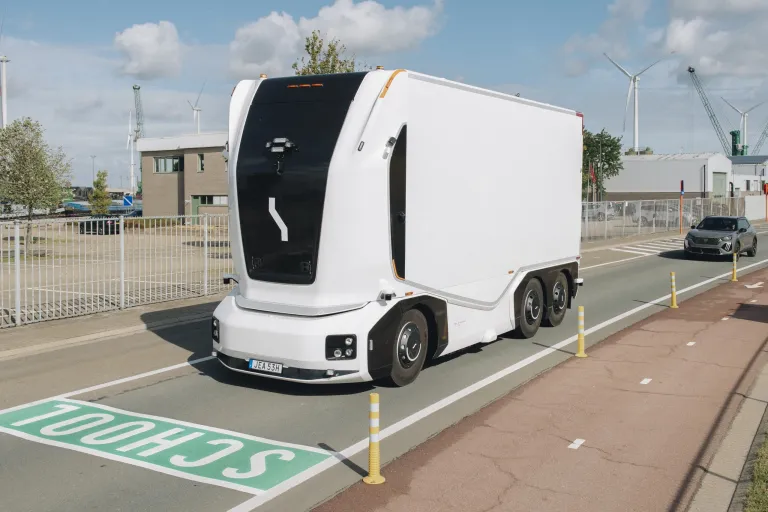
Einride and Port of Antwerp-Bruges launch Belgium’s first autonomous transport test
BELGIUM : Einride and the Port of Antwerp-Bruges recently heralded a significant milestone in the realm of autonomous transport in Belgium. Their pilot test involving ‘autonomous’ trucks has been touted as a groundbreaking achievement, fueling optimism about the future of freight transport. However, the highly regulated environment in which this testing occurred raises pressing questions about the viability of such technologies in real-world applications.
Henrik Green, CTO and General Manager for Einride Autonomous Technologies, said: “Today in Antwerp, we showcase how public and private sectors can come together toward shared goals. European Ports, such as Antwerp-Bruges, are essential for decarbonising logistics and secure our supply chains; and with the European Commission acknowledging autonomous vehicles as key to EU competitiveness, we’re proud to showcase a clear example of how innovation and regulation can be balanced for safer, more efficient and sustainable logistics.”
The Port of Antwerp-Bruges is testing a range of autonomous systems, including drones for monitoring and inspection, remotely piloted vehicles, and uncrewed or semi-autonomous vessels.
These technologies are intended to enhance safety by reducing human exposure to high-risk and repetitive tasks, while also improving efficiency and lowering emissions. The port has emerged as a preferred testing ground due to its operational complexity and scale. Trials are being supported by public and private sector collaboration, alongside regulatory efforts at the European, federal, and Flemish levels to create “sandbox” environments for emerging technologies.
Jacques Vandermeiren, CEO of Port of Antwerp-Bruges, stated: “With this event, we are demonstrating that autonomy in our port is not a distant concept. Autonomous solutions are already making us smarter, safer and more sustainable today. And that is exactly what we need to continue to strengthen our role as a world port. After all, we want to be a gateway for goods, but also a gateway to the future.”
The port’s ongoing focus on automation is closely tied to broader objectives around climate performance, cost control, and global competitiveness in the maritime and logistics sectors.
The charmed narrative showcasing autonomous trucks inevitably dances around a crucial point: the strict limitations imposed by the test environment. With stringent protocols governing the operations, the pilot may not accurately reflect the complexities of public road usage. As advocates herald these advancements, one must ponder: what challenges lie ahead when these vehicles are thrust into the unpredictable dynamics of everyday traffic? Industry experts warn that the transition from controlled environments to public thoroughfares is laden with legal, ethical, and technological hurdles. According to a 2021 study by the International Transport Forum, the vast majority of current autonomous technology remains untested in varied and real-time scenarios, suggesting a steep hill to climb before full deployment becomes feasible.

